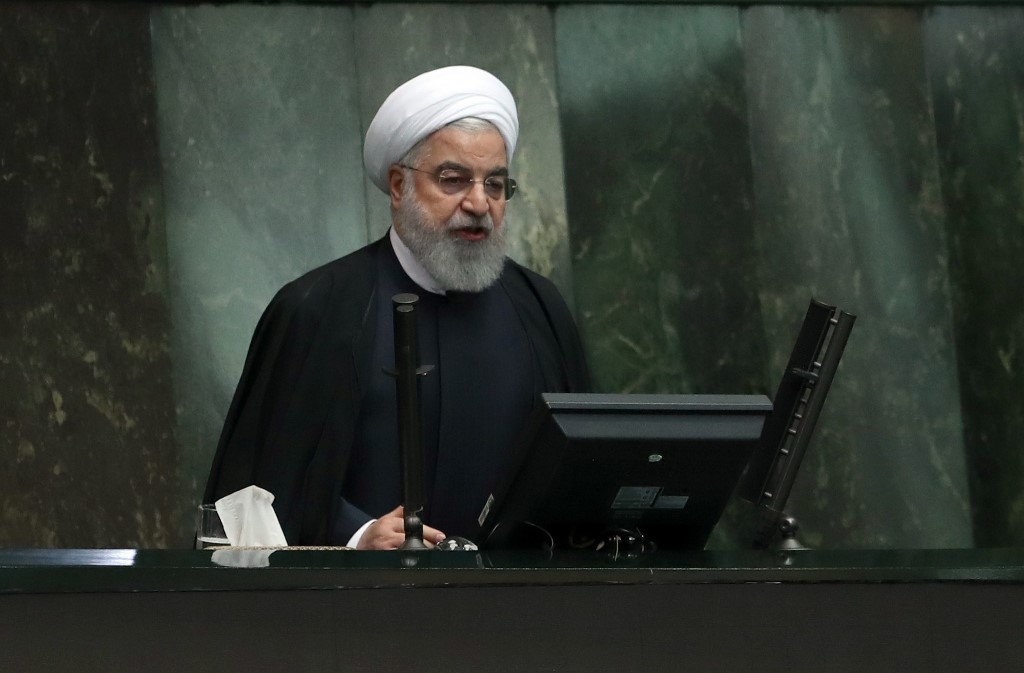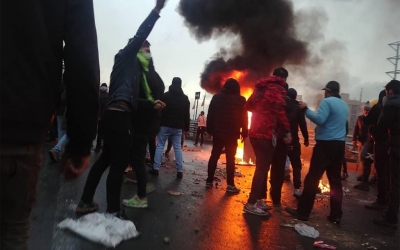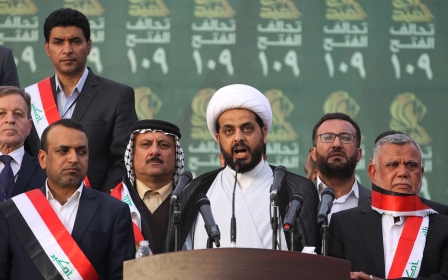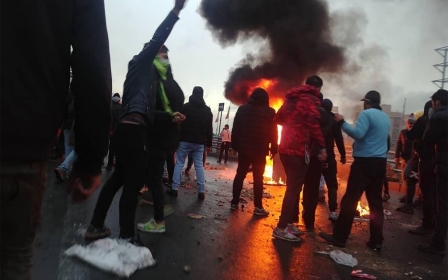Iran announces 'resistance' budget to counter sanction effects

Iranian President Hassan Rouhani announced on Sunday a new budget aimed at countering the effect of US sanctions.
In a statement to parliament, Rouhani unveiled what he called "a budget of resistance and perseverance against sanctions," including a 15 percent increase in public sector wages to take effect in the Iranian calendar year starting on 20 March.
The budget, designed to limit dependence on oil exports, comes in the aftermath of deadly protests against fuel price increases introduced in mid-November in the sanctions-hit country.
The protests were met with a crackdown that left at least 208 people killed, according to Amnesty International.
The almost 200 percent rise in the price of fuel was due to a cut in subsidies following the squeeze on the country's economy caused by crippling US sanctions slapped on Iran's key industries, which have hurt the country's foreign earnings.
The US imposed sanctions on Iran in May last year after unilaterally withdrawing from a landmark nuclear deal. The sanctions include an embargo on the crucial oil sector, Iran's main source of revenue, whose sales Washington aims to reduce to zero in a campaign of "maximum pressure" on other foreign countries.
On Sunday, Rouhani said the aim of the the 4,845 trillion rial (between $36bn at the current street rate and $38.8bn at the free market exchange rate) budget was to reduce "hardships" as the Islamic republic has suffered a sharp economic downturn, with a plummeting currency sending inflation skyrocketing and hiking import prices.
He said the budget would "announce to the world that despite sanctions we will manage the country, especially in terms of oil".
Rouhani said his government would continue to subsidise basic goods and medicine in the budget, based at an exchange rate of 42,000 rials to the dollar, compared to the free market rate of 125,000 rials. Using the lower exchange rates makes them more affordable to ordinary Iranians who have complained of surging prices.
The new budget is 10 percent bigger than this financial year in local currency terms - although its dollar value is lower due to annual inflation that is running at about 35 percent.
Rouhani said Iran would benefit from a $5bn "investment" from Russia that is still being finalised and was requested for development projects, without giving further details, other than it would be finalised in the budget year.
"We know that under the situation of sanctions and pressure, people are in hardship. We know people's purchasing power has declined," said Rouhani.
"Our exports, our imports, the transfer of money, our foreign exchange encounter a lot of problems.
"We all know that we encounter problems in exporting oil. Yet at the same time, we endeavour to reduce the difficulty of people's livelihood."
Rouhani said that despite the US sanctions, his government estimated that Iran's non-oil economy would "be positive" this year.
The International Monetary Fund has forecast the Iranian economy will shrink by 9.5 percent this year, with the local currency plummeting and inflation exceeding 40 percent.
The IMF has indicated Iran would need oil prices to be triple current levels to balance its budget as its crude exports have plunged.
Middle East Eye delivers independent and unrivalled coverage and analysis of the Middle East, North Africa and beyond. To learn more about republishing this content and the associated fees, please fill out this form. More about MEE can be found here.





